From the vivid colors of a sunset to the nuanced expressions on our loved ones’ faces, our eyes help us experience the beauty of the world. But like the rest of our bodies, they need the right nutrients to function at their best. In this article, we’re breaking down the ‘menu’ for healthy eyes, discussing the nutrients vital for maintaining good vision. Ready to feast your eyes on some knowledge? Let’s dive in!
The Anatomy of the Eye & The Importance of Nutrition
Nutritional Superheroes for your Eyes
To help you put nutrition for the eye at the forefront of your dietary decisions, this section shines a spotlight on the key vitamins and minerals you should invite onto your plate.
Vitamin A
Often called the ‘eye superhero,’ Vitamin A plays a key role in keeping our vision sharp and clear. It’s like the protective shield of our corneas and conjunctival membranes. It also has another cool trick up its sleeve – it aids in the formation of rhodopsin, a protein that lets our retinas soak up light, contributing to our ability to see clearly in low-light conditions and perceive vibrant colors. A lack of Vitamin A can make night-time driving a challenge and lead to other significant eye problems.
To ensure your Vitamin A supply is never running low, you might want to befriend carrots, sweet potatoes, spinach, and kale. They’re rich in beta-carotene, a form of Vitamin A that our bodies can easily use.
Lutein and Zeaxanthin
Vitamin C
Omega-3 Fatty Acids
Selenium
This essential mineral works closely with antioxidant enzymes to prevent oxidative stress in our bodies, including our eyes. By protecting our eyes from oxidative damage, selenium can play a role in preventing cataracts and age-related macular degeneration.
You can find selenium in Brazil nuts, seafood, eggs, and brown rice.
Zinc
Last, but certainly not least, is zinc. This handy helper brings Vitamin A from the liver to the retina to create melanin, a protective pigment in the eyes. Having enough zinc in your diet is essential for good vision, including night vision, and a deficiency could result in impaired vision.
Zinc-rich foods include beef, oysters, lobster, pork, and baked beans.
Life Choices: Beyond Just Eating Right
Sure, a nutrient-packed diet is fantastic, but don’t forget the other aspects of eye health. Regular exercise can be a game-changer by improving blood circulation and toxin removal. And you might want to ditch the smokes and cut down on the alcohol, as they’re known to be party poopers for your vision. Hydration is equally important.
Wrapping Up
Nutrition is important for healthy eyes. However, it’s just one piece of a large puzzle. Regular eye check-ups, proper eye protection, and an overall healthy lifestyle complement a nutritious diet in maintaining your vision. After all, isn’t our aim to enjoy life’s visual delights for as long as possible? So, make a commitment to feed your eyes right, and trust me, they’ll thank you for it!
Related Posts
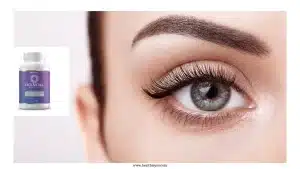
Ocuvital Reviews: Nutrition for the Eye
Nutrition and diet can have long-term effects on the eye or ocular health. Nutrition plays an important role in maintaining eye health; nutritional interventions help
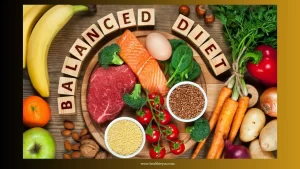
Importance of Balanced Diets & Healthy Eating for a Happy & Healthy Life
In today’s fast-paced world, where we’re constantly on the go and trying to keep up with the demands of work, family, and other commitments, we
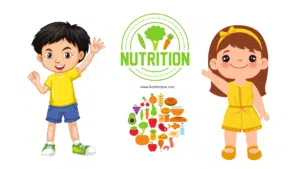
Importance of Nutrition for Children and Kids Little Tummies
Childhood begins after infancy & lasts until puberty. Physical & mental growth plays an important role in their developing years. If the child is malnourished
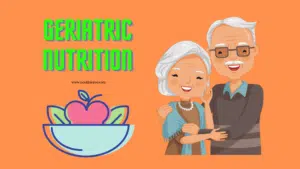
Geriatric Nutrition – The Science of Nutrition for the Elderly
The Science of Nutrition for the Elderly – What is Geriatric Nutrition? Why it is important? Know the challenges of geriatric nutrition considering the various
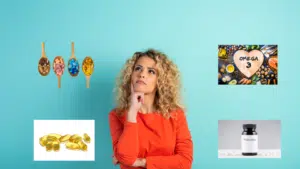
Multivitamin, Probiotic, Omega 3 – Don’t Let Dietary Supplement Selection Overwhelm You
You’re here. You have finally decided to take control of your health and are looking into which dietary supplement to add to your wellness toolbox.
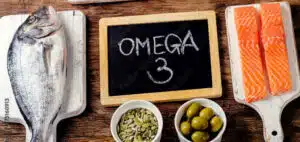
Fatty Acids, Triacylglycerol, Cholesterol – The Wonders of Fats!
Are fats healthy? Check out the wonders of fats – the fatty acids such as MUFA and PUFA, the triacylglycerol, and the cholesterol. As a
Disclosure
“This is an external post and the views expressed are of the sponsor/author/third party and not of Healthieyoo’s editorial team. The publishers of this website take no responsibility for any health issues, personal injury, death, disability, or any other harm due to the content on our website or any advice or opinion expressed on our website. Please also read our medical disclaimer “.


